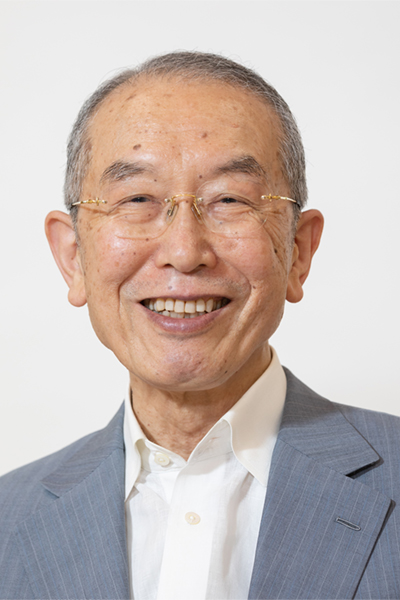Preparing for the Autumn of Life
September 2025

Things That Leave Are Leaving and Again Filling My Mind
Our lifetimes are often likened to the four seasons. Spring is a period of growth, when new life sends forth sprouts that grow by leaps and bounds; summer is a period of activity, when we are bursting with energy and socially very active; autumn is a period of harvesting, when we mature as human beings, welcome the autumn fruits of our labors, and prepare for winter; and winter is a period of living tranquilly, having reaped the fruits of life, as we wait for the new buds of spring to sprout from the seeds that have overflowed and fallen from us.
People may have different ideas about this, but based on the current thinking that our time is the era of the hundred-year life, I think we can assume that spring refers to the period up to age twenty-five, summer from twenty-five until age fifty, autumn from fifty until age seventy-five, and winter from then on.
However, of these four seasons, images of autumn and winter are hardly energetic and full of vitality, and I think many people associate those seasons with cold, lonely impressions, like dead leaves falling from trees and shivering from wind and snow.
On the other hand, in the ancient Indian concept of the four periods of existence that divides our lifetimes into four parts to match the four seasons, the stage of retiring to the forest, corresponding to autumn, is actually considered to be life’s golden period—a time without being troubled by various entanglements and obligations, when one can prepare for a fulfilling and enjoyable final stage of life (the stage of wandering freely).
To quote a haiku by Ryuta Iida, “Things that leave are leaving, / And again filling [my mind]— / The skies of autumn,” indeed, autumn is a time in life when we are gradually liberated from things that, up to that point, we had found troublesome, and we turn toward winter with a clear mind and a heart full of things that are satisfying and hopeful (Haiku konjaku [Haiku now and past], Fujimi Shobo, 1988).
However, in the course of living our lives, we sometimes regret that we did not do things differently, and especially in the latter half of life, such thoughts tend to bubble up in our minds. However, I think that these regrets and reflections can certainly become “fruits” that help us face winter.
Persimmons and chestnuts, which are harvested in the fall, do not become nourishment if we dislike their astringency or thorns, but if we accept them as bountiful blessings and take the time to carefully prepare them, we can enjoy their deliciousness. In the same way, we can say that “harvesting” bitter feelings and turning them into spiritual nourishment and energy for the winter is a great “fruit” only attainable in that season.
Winter Is a Time of Learning
Approximately 2,600 years ago, Confucius, who died at the age of seventy-four, spoke of his own spiritual journey in The Analects: “At age fifty, I knew what heaven commanded of me; at sixty, my ears could listen obediently; and at seventy, I could follow my heart’s desire without overstepping the bounds of propriety.” In other words, in the autumn of life, you begin to understand the principles of the universe, and when you listen to what others say, their reasons make sense to you; and as you enter the winter years, you can do as you please, naturally, without straying from etiquette and social norms.
I am already in the middle of my winter years, but as a human being, I am nowhere near reaching such a mature state of mind. However, considering the average life expectancy back then compared with now, Confucius’s seventy years old would be about one hundred and ten years old today. I am an octogenarian, but my practice and learning are still far from complete, and there are many things I do not know or understand, so therefore, I honestly think that I should continue to learn as much as possible.
These aspirations are akin to the instincts that all human beings possess. Moreover, if you have the desire to learn, you can encounter many new things no matter how old you are, and that joy and inspiration will give you the energy to live as well as something to enjoy in the winter of your life.
In order to do this, health is also important, but as Seibo Kitamura (1884–1987), a sculptor known for the Nagasaki Peace Statue, said when he was a hundred years old (according to the Japanese way of reckoning age) in a conversation with Founder Niwano, who was then seventy-seven, the secret to a long and healthy life is, “Don’t get angry. Don’t let things get to you or bother you.” To this, Founder Niwano added, “And don’t lie,” to which Kitamura replied, “If you don’t lie, your mind is pure and your health is good,” and described his daily habit of writing in calligraphy, as people requested of him, “Pure mind, long life.”
Striving to deepen one’s learning, and being unpretentious and honest—this attitude is sure to serve as an example for younger generations. But I would like to return to the topic of deepening our learning in another issue of this magazine.




